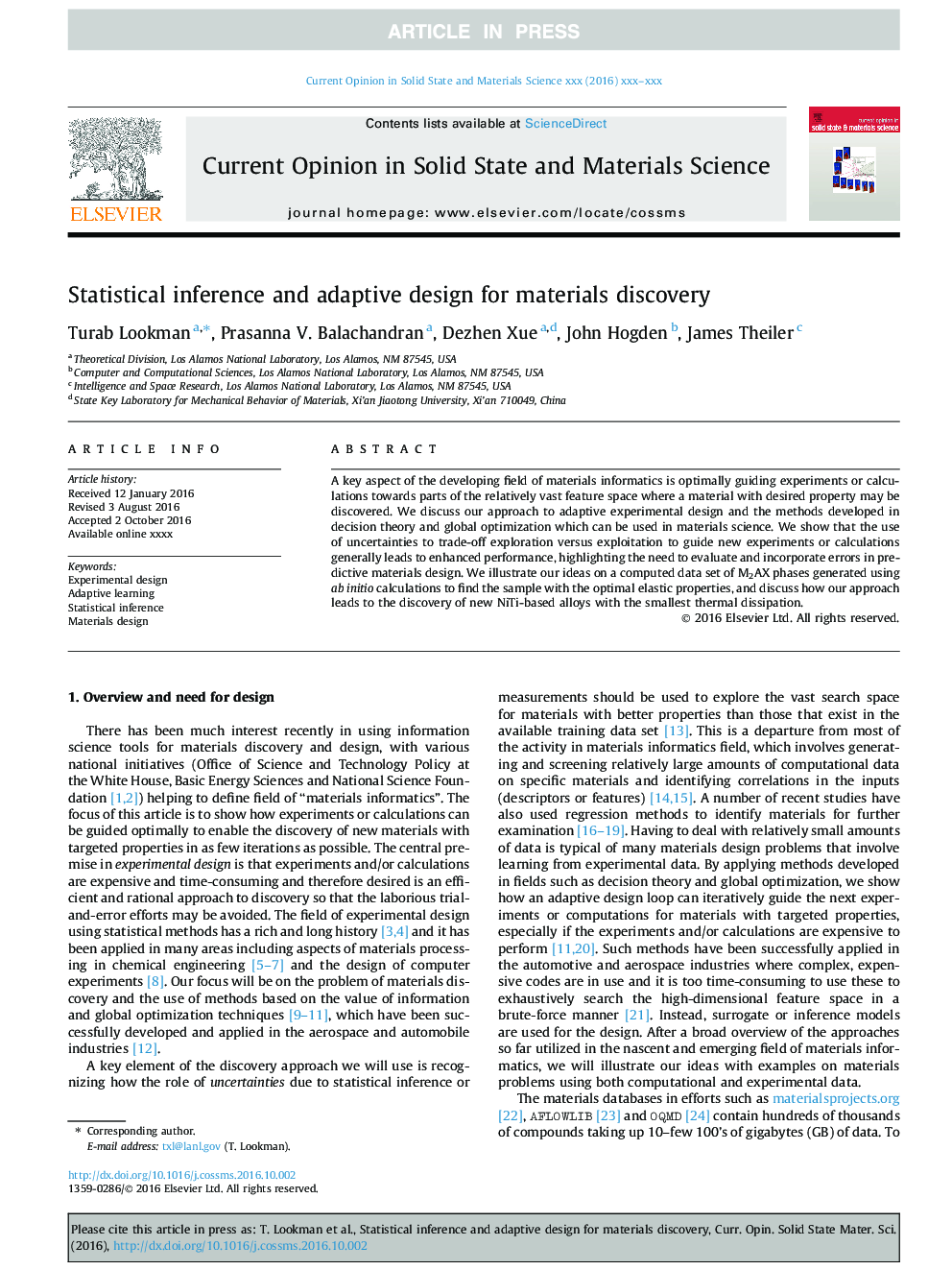| Article ID | Journal | Published Year | Pages | File Type |
|---|---|---|---|---|
| 5451478 | Current Opinion in Solid State and Materials Science | 2017 | 8 Pages |
Abstract
A key aspect of the developing field of materials informatics is optimally guiding experiments or calculations towards parts of the relatively vast feature space where a material with desired property may be discovered. We discuss our approach to adaptive experimental design and the methods developed in decision theory and global optimization which can be used in materials science. We show that the use of uncertainties to trade-off exploration versus exploitation to guide new experiments or calculations generally leads to enhanced performance, highlighting the need to evaluate and incorporate errors in predictive materials design. We illustrate our ideas on a computed data set of M2AX phases generated using ab initio calculations to find the sample with the optimal elastic properties, and discuss how our approach leads to the discovery of new NiTi-based alloys with the smallest thermal dissipation.
Related Topics
Physical Sciences and Engineering
Materials Science
Materials Chemistry
Authors
Turab Lookman, Prasanna V. Balachandran, Dezhen Xue, John Hogden, James Theiler,
